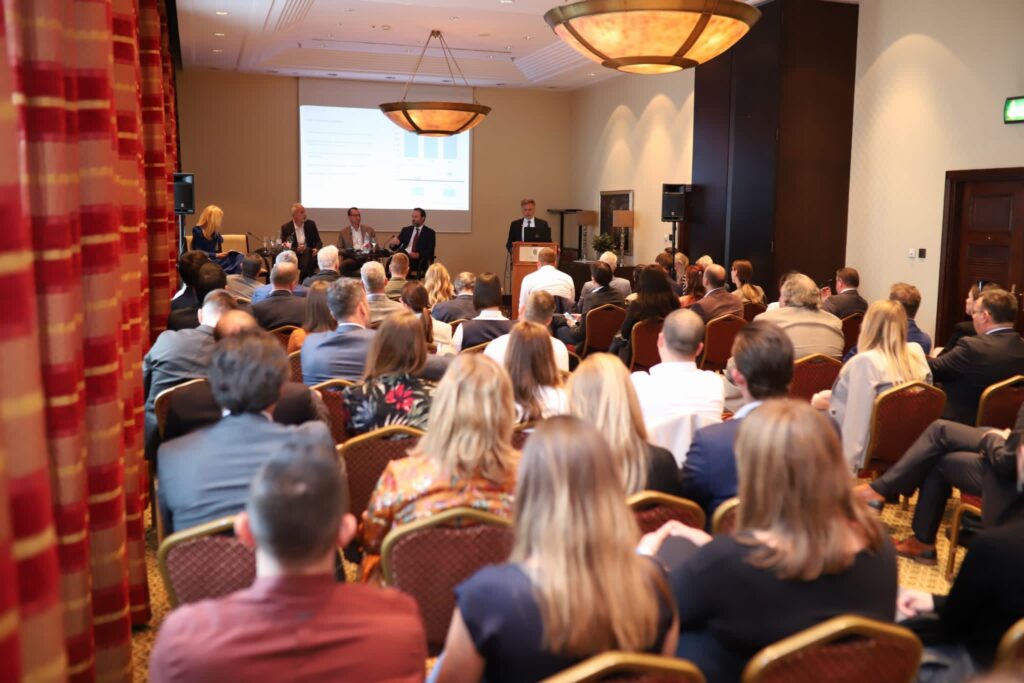At the Seventeenth Annual International Conference on Real Estate Development, in Zagreb, held the panel “Real Estate Market of Southeast Europe after the Crisis”
“Last year, in addition to COVID 19, ended with a positive volume of investments in the SEE region, while the main problems occurred in supply, rising prices of energy and raw materials, most affected by the Russian-Ukrainian war. The leading players in the market are Serbia, Croatia and Bulgaria, followed by Slovenia,” said Mia Zečević, CEO Novaston.

The coronavirus pandemic has briefly slowed down the development of the real estate industry throughout the region. Although it did not look like that at the beginning of the crisis, the real estate market soon showed strong resistance, as well as the ability to adapt and recover, as assessed in the panel “Real Estate Market of Southeast Europe after the Crisis”, at the Seventeenth Annual International Conference on Real Estate Development, held in Zagreb. The moderator of this panel was Mia Zečević, CEO of Novaston Platform, a company that is a leader in real estate management in Serbia and is rapidly positioning itself in the retail, commercial, and hotel sectors in this country and in the region, especially in Croatia, primarily through projects in Rijeka and Opatija.
Mia Zečević pointed out that last year, in addition to COVID 19, ended with a positive volume of investments in the SEE region, while the main problems occurred in supply, rising energy and raw materials prices, mostly under the influence of the Russian-Ukrainian war. She reminded us that the new crisis in March brought inflation, which reached the highest level in the last 40 years, and the biggest challenge will be the work on stabilisation and its reduction.
On the other hand, Nebojša Nešovanović, Head of Valuation SEE at CBRE, assessed that the similarity of both crises (pandemic and war in Ukraine) is visible in lower economic growth, but also growth in public investment (during the pandemic – investing in health, and now in armaments). “Apart from these similarities, there are also significant differences. During COVID 19, operational problems arose – employees did not go to offices, and certain shopping malls had to close. In contrast, others shortened working hours, and in that period we had very stable inflation, even low. Now with the crisis in Ukraine, the problems are no longer operational in nature, but more financial. At the moment, we have very serious inflation, which raises construction costs, operating costs, and leads the FED and the European Central Bank to change their monetary policy, ” Nešovanović pointed out.

The mayor of Rijeka, Marko Filipović, said that history teaches us that the world is constantly going through crises and that Croatia should use its comparative advantages. He assessed that the perspective is in turning toward the European economy because Croatia will, on January 1st, 2023, introduce the euro and become a member of Schengen. As he stated, tourism is recovering, and this is confirmed by the data that Rijeka recorded 14 percent more overnight stays in the first four months of this year than the record in 2019.
“My mandate is to change the face of the city in these four years. A lot is being invested in tourist capacities, and many worldwide companies have recognized our city as a place with investment potential. We have many projects, among which the “West Žabica Complex” is significant, as the new bus station in our city, as well as the development of the marina, the oldest part of our port. The project ‘Rijeka Waterfront’ is crucial for the development of this area, a large and award-winning project of the strongest Croatian architectural bureaus, which covers the size of almost the entire city center,” said Filipović.
The executive director of Remington Realty – Christie’s International Real Estate Croatia, Ivan Kovačić, believes that, when it comes to luxury real estate, the situation is much better than three years ago when they decided to bring the prestigious Christie’s brand to the region. According to him, the post-pandemic period brings an increase in demand for real estate in the upper-middle and luxury and even super-luxury segment, on the Adriatic coast, which also affects the growth of prices per square meter. Natural beauty, geographical position (closest coast to Central Europe), security, and price competitiveness in relation to other prominent holiday destinations in Europe and globally are the main advantages that Croatia should use to develop more intensively as a premium destination.

Speaking about the challenges that crises bring to large business systems, the CEO of MK Group Mihailo Janković pointed out that only those companies that are quick to adapt to new circumstances are successful. And that is why MK Group has developed as an agile and flexible investment company. “Such an organization enables us to efficiently manage and enter new investments, create and develop sustainable businesses focused on profitability, as well as optimize all business processes. We use the experience and knowledge that we have accumulated over time to recognize good market opportunities for growth and expansion easily, and we react quickly,” said Janković. According to him, MK Group is continuously considering new investments, with a pipeline of 500 million euros.
“Despite the crises, the real estate sector is showing not only recovery but also new development opportunities,” concluded Mia Zečević. As a company that always looks to the future and anticipates trends, Novaston Platform, which is among the leading companies in the management of retail parks, with business in the hotel, office, and logistics sectors, believes that the Istrian region, like the capitals of the region, will revive in the next five years with the implementation of new and, at this time, challenging projects.